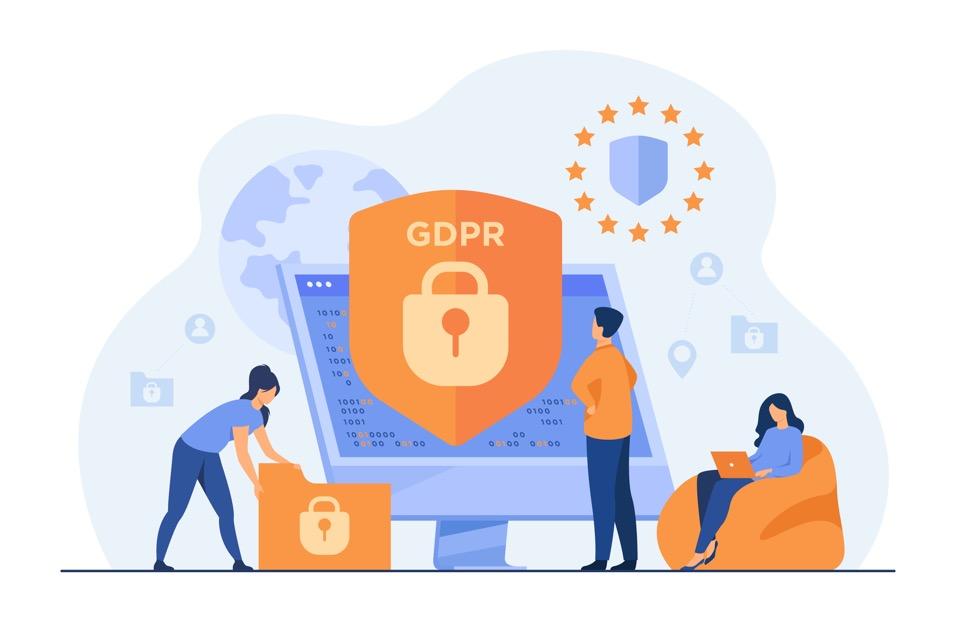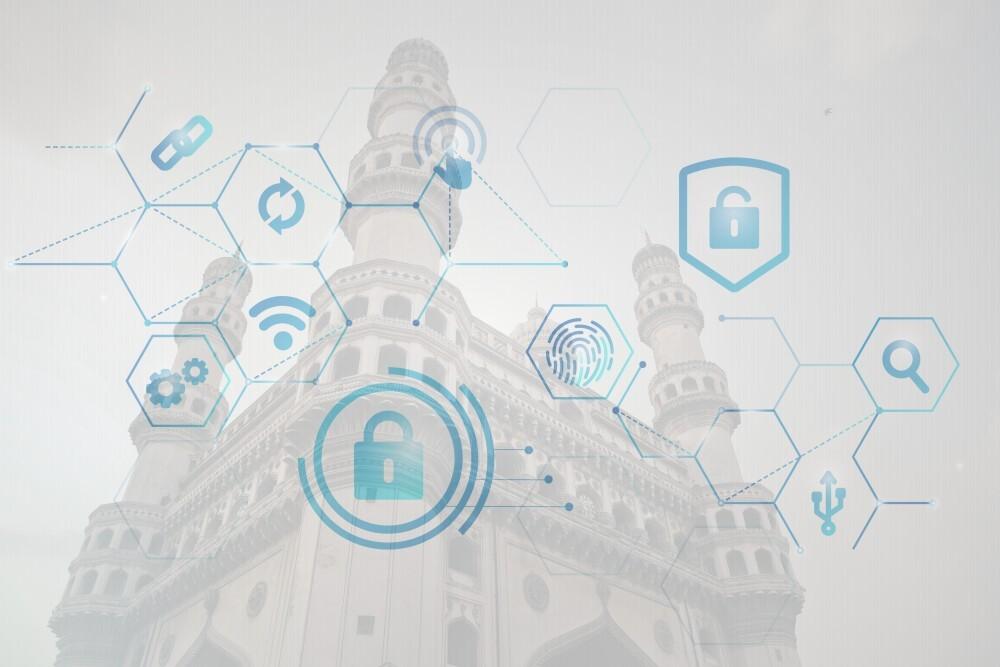
The proliferation of e-commerce businesses has made the need for robust cybersecurity for e-commerce more critical than ever before. As online retailers incorporate innovative technologies into their platforms, cyber attackers continuously adapt their tactics to exploit vulnerabilities.
This blog post delves into the realm of cybersecurity for e-commerce, emphasising the significance of safeguarding customer data and fostering trust within your customers.
Ensuring cybersecurity for e-commerce is of paramount importance to protect customer data and build trust. With the increasing frequency and sophistication of cyber threats, businesses must prioritise cybersecurity for e-commerce websites to safeguard customer information and prevent data breaches.
The e-commerce industry faces various cybersecurity threats that can compromise customer data and undermine trust. Some common threats include phishing, malware and ransomware attacks.
Phishing attacks: Cybercriminals impersonate legitimate entities through emails or websites to trick users into sharing sensitive information such as login credentials or credit card details. Use email filters to block phishing emails. Educate employees and customers to avoid clicking suspicious links or sharing personal data.
Malware and Ransomware: Malicious software can infect e-commerce platforms, compromising customer data or demanding a ransom for its release. Strong cybersecurity for e-commerce, includes firewalls, intrusion detection systems, and anti-malware software along with regularly updating and patching software, including operating systems, browsers, and e-commerce platforms.
Real World Use Cases
MobiKwik
In a significant incident, MobiKwik, an Indian digital payment firm providing mobile-based payment solutions and a digital wallet service, experienced a breach of user data. The personal information of a staggering 110 million users was exposed. Despite the company's denial of any data breaches, two separate and unaffiliated researchers discovered the compromised data being offered for sale on the dark web.
Dominos India

The popular pizza brand Dominos in India encountered a significant customer data breach. The breach resulted in the exposure of detailed information, including names, addresses, delivery locations, cell numbers, and email IDs of 1 million customers who had placed orders through their portal via mobile devices or computer systems. The total number of orders affected by the breach amounted to 18 million.
Communicating security measures to customers is crucial for building trust in e-commerce. By transparently sharing information about the security measures in place, businesses can instil assurance in their customers.
Here are some effective ways to communicate security measures to customers:
- Clear and concise privacy policies: Businesses should clearly outline their data collection, storage, and usage practices in their privacy policies. This helps customers understand how their data is managed and provides transparency.
- SSL certificates and encryption: Displaying SSL certificates on the website and using encryption protocols like HTTPS assure customers that their data is being transmitted securely.
- Trust seals and certifications: Displaying trust seals and certifications from reputable cybersecurity organisations can give customers confidence in the security measures implemented by the business.
- Communicating through newsletters and website: Businesses can proactively communicate their security practices through newsletters and dedicated sections on their website including information about regular security audits, password encryption, and employee training.
- Customer Support: Providing responsive customer support and promptly addressing any security concerns or issues can demonstrate a commitment to customer data protection.
- By effectively communicating the cybersecurity measures for e-commerce, businesses can establish trust and differentiate themselves in a competitive market while ensuring the protection of customer data.
Customers want to feel confident that their personal information is safe when making online transactions.
To build trust and protect customer data, here are a few ways to elevate cybersecurity for e-commerce:
- Secure payment gateways by using encryption protocols and regularly monitoring for any suspicious activities.
- Regularly update and patch software to protect against vulnerabilities that hackers can exploit.
- Comply with data protection regulations such as the General Data Protection Regulation (GDPR) to ensure that customers- rights and privacy preferences are respected.
- Restrict access to sensitive customer data, ensuring that only authorised personnel have access.
- Train employees on best cybersecurity practices to minimise the risk of human errors or negligence.
By prioritising cybersecurity for e-commerce and implementing robust data protection measures, e-commerce businesses can build trust with their customers and mitigate the impact of data breaches on customer trust.
What is The General Data Protection Regulation (GDPR)?
 The General Data Protection Regulation (GDPR), implemented by the European Union, is a comprehensive set of regulations that govern the processing and protection of personal data.
The General Data Protection Regulation (GDPR), implemented by the European Union, is a comprehensive set of regulations that govern the processing and protection of personal data.
Some key provisions of the GDPR in relation to e-commerce include:
- Lawful Processing: Personal data must be processed lawfully, fairly, and transparently, with a valid legal basis for processing.
- Data Minimisation: Organisations should only collect and retain the minimum amount of personal data necessary for the specified purpose.
- Consent: One must ensure they give exclusive and informed consent for processing their data.
- Individual Rights: Data subjects have the right to access, rectify, and erase their personal data, as well as the right to restrict processing and data portability.
- Data Breach Notification: Organisations must notify the supervisory authority and affected individuals within 72 hours of discovering a data breach.
- Data Protection Impact Assessments (DPIA): Organisations must conduct DPIAs for high-risk processing activities and implement measures to mitigate any identified risks.
- Accountability: Organisations are responsible for demonstrating compliance with the GDPR through documentation, policies, and procedures.
Securing Payment Processes
Securing payment processes is crucial for e-commerce businesses to protect customer data from unauthorised access and fraud. Here are some key measures to enhance payment security:
- Payment gateways: Use trusted and reputable payment gateways that encrypt sensitive payment information and comply with industry standards (e.g., PCI DSS).
- Secure Sockets Layer (SSL) certificates: Install SSL certificates to establish an encrypted connection between the customer's browser and the website, protecting data transmission.
- Two-factor authentication (2FA): Implement 2FA for customer accounts and admin access to add an extra layer of security.
- Secure code practices: Follow secure coding practices to prevent common vulnerabilities like SQL injection and cross-site scripting.
By understanding customers- rights and securing payment processes, cybersecurity for e-commerce can ensure protection of customer data and build customer trust.
Ensuring the security of payment gateways is crucial in protecting customer data and preventing unauthorised access. Tokenisation and PCI DSS compliance are crucial for securing payment gateways, protecting customer data, and fostering trust in the payment process.
Tokenisation:
Use tokenisation to replace payment card information with randomised tokens. This reduces the risk of storing sensitive data and minimises the impact of a data breach.
Payment Card Industry Data Security Standard (PCI DSS) compliance: Ensure that the payment gateway is PCI DSS compliant. Compliance with these standards helps protect customer data and instils confidence in the security of the payment process.
Restricting access to sensitive customer data is crucial to maintain cybersecurity for e-commerce platforms. By limiting access to only authorised personnel, businesses can significantly reduce the risk of data breaches and unauthorised use of customer information.
This can be achieved through the following measures:
- Role-based access control: Implementing role-based access control ensures that employees only have access to the data necessary for their job function.
- Two-factor authentication: Enforcing two-factor authentication adds an extra layer of security by requiring users to provide additional verification, such as a code sent to their mobile device, in addition to their password.
- Regular auditing and monitoring: Regularly auditing access logs and monitoring access attempts can help identify any unauthorised access attempts or suspicious activities.
Training employees on cybersecurity best practices is vital for protecting customer data and building trust and cybersecurity in e-commerce. It includes raising awareness about phishing attacks, implementing a strong password policy, and teaching data handling guidelines. By integrating these training elements, businesses empower employees to protect data, handle information responsibly, and respond to security incidents.
Developing an Incident Response Plan and Establishing a Response Team
It is crucial for e-commerce businesses to develop an incident response plan that outlines clear steps to be taken in the event of a data breach. This plan should include establishing a dedicated response team comprising individuals with expertise in cybersecurity and communication.
By being prepared and having a well-defined response plan, businesses can minimise the impact of a data breach and swiftly respond to mitigate further damage.
Communicating Effectively With Customers And Stakeholders During A Breach transparency and effective communication are key when dealing with a data breach. it is essential to promptly notify affected customers, providing them with clear and concise information about the breach, the potential impact on their data, and the steps being taken to address the situation. openly addressing concerns and providing regular updates can help maintain trust and demonstrate a commitment to resolving the issue.
Partnering with Cybersecurity Experts and Service Providers
To strengthen cybersecurity measures, businesses can partner with cybersecurity experts and service providers. These professionals can offer assessments and consultations to identify vulnerabilities and recommend appropriate solutions. Engaging managed security service providers for proactive threat monitoring ensures round-the-clock surveillance and immediate response to emerging threats. By staying updated on industry standards and best practices, businesses can continuously adapt and improve their cybersecurity posture.
The Conclusion
In conclusion, prioritising cybersecurity for e-commerce is paramount to protect customer data and build trust. By developing an incident response plan, containing and mitigating the impact of data breaches, and communicating effectively with customers and stakeholders, businesses can navigate through security incidents with transparency and professionalism.
Collaborating with cybersecurity experts, engaging managed security service providers, and staying updated on industry standards ensure a proactive approach to cybersecurity. By investing in robust cybersecurity measures, businesses can create a secure e-commerce environment, reinforce customer trust, and foster long-term loyalty. Remember, safeguarding customer data is not only a legal and ethical responsibility but also a competitive advantage in today's digital landscape.
Visit our website: https://ccoe.dsci.in
Download our intuitive resources: https://ccoe.dsci.in/resources/





